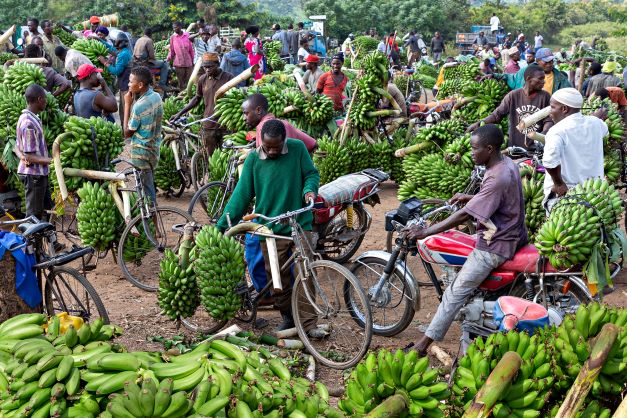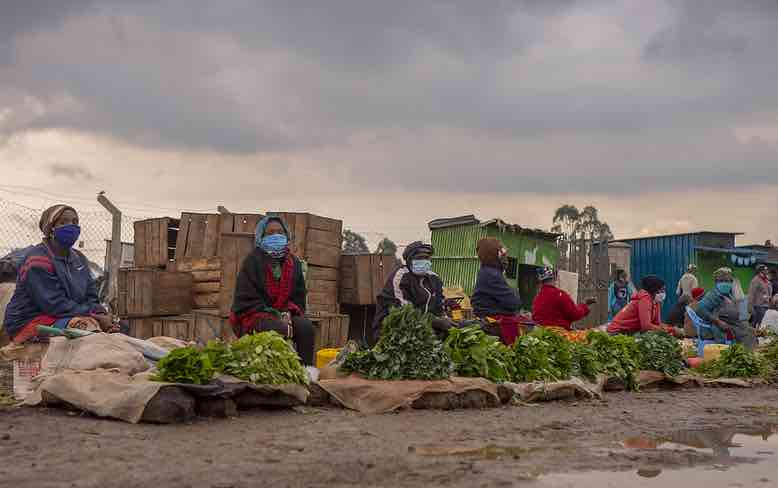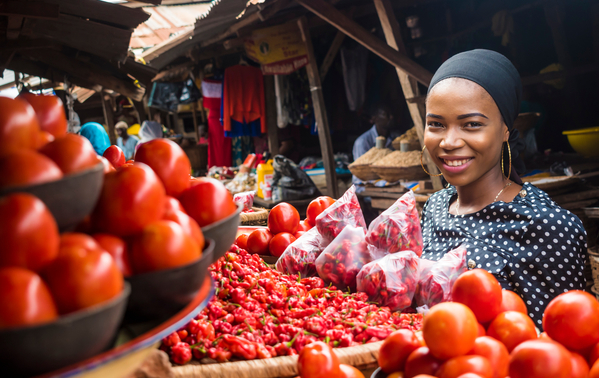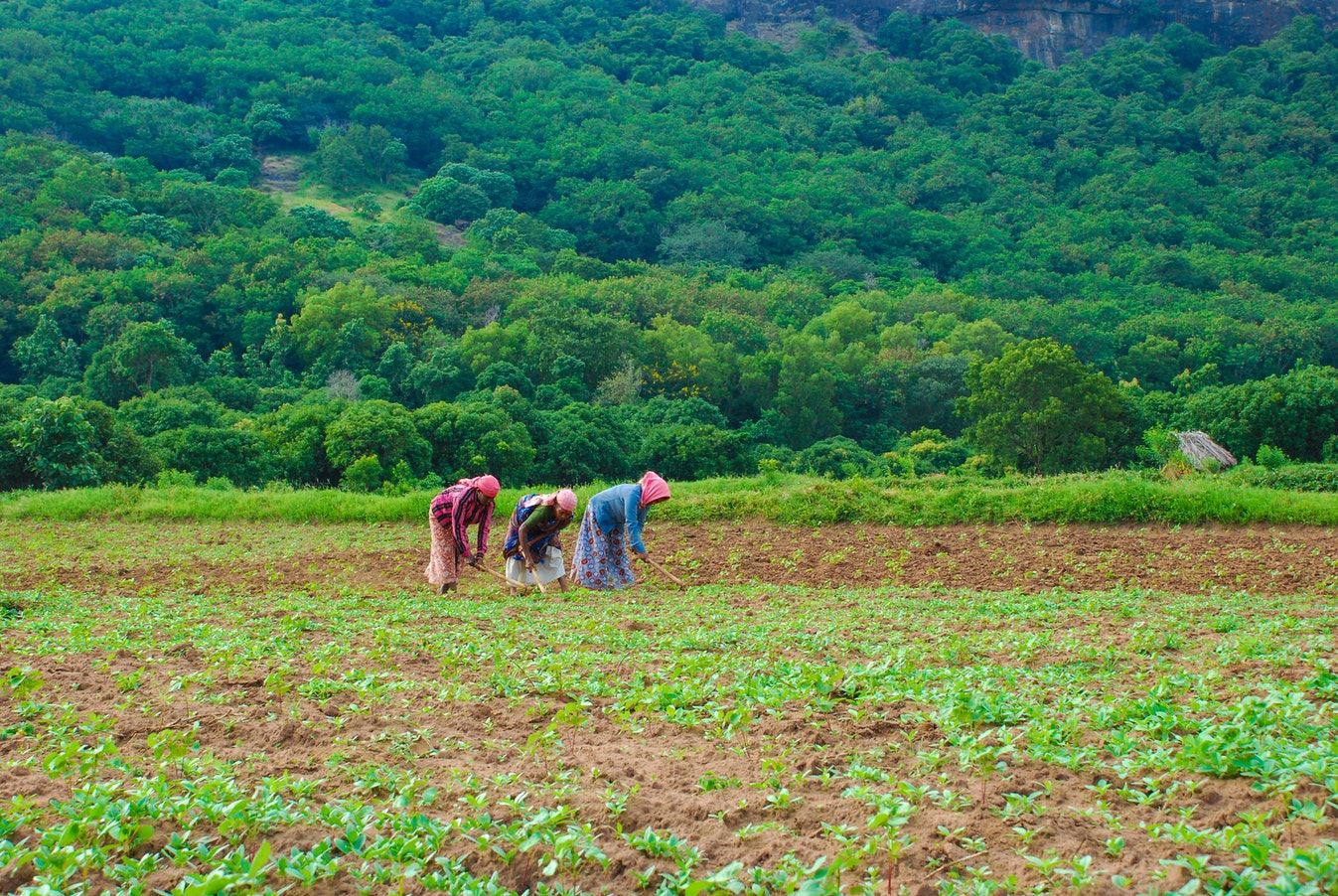By Sokhna Sall Seck

The empowerment of women and girls and the recognition and respect of their rights is critical to secure, sustainable and equitable global food systems. On November 23rd, 2020, a virtual pre-event for the UN Food Systems Summit, co-hosted by IFPRI and the World Economic Forum on “Building Gender Equitable Food Systems” explored ways to advance gender equality and women’s empowerment in food systems. The meeting identified evidence on what works and addressed some of the key priorities for food systems transformation that also leads to gender equality.
Starting off the discussion, Dr. Jemimah Njuki, IFPRI’s Director for Africa and Custodian of the Gender Equality and Women’s Empowerment Lever of the UN Food Systems Summit 2021, showed the importance of women in food systems by mentioning that while ‘‘gender equality and food systems are mutually supportive, gender equality remains a major goal in many regions and closing current existing gender gaps and transforming some of the underlying courses of gender equality is urgently needed’’.
Women and girls are facing many obstacles as their access to land rights and property are very limited, and ‘’these inequalities are not only affecting women but are also affecting household food security and nutrition’’, said Jemimah. She continued:
“Women and girls are involved in food systems transformation, but they should also have access to benefits, and be empowered for an inclusive food system transformation. She called for multi-stakeholder action so that, ‘’as food systems undergo transformation, they are not just sustainable, but they are also equitable and inclusive.’’
Following Jemimah’s introduction, the panelists shared their experience on gender equality and women empowerment across the globe.
Ms Reema Nanavaty, Executive Director of the SEWA (Self Employed Women’s Association) talked about the harmful effects of the COVID 19 pandemic and lockdown on women and food systems in India. She said an internal survey conducted by her association found that the COVID 19 pandemic has led women into a situation of food insecurity with a decline in the quantity of food and household income, a high dropout rate of girls in school, and an increase of violence and abuse of women and girls from men (about 25% households).
According to her, these difficulties experienced by women did not prevent them from taking charge of themselves, from making efforts to meet their needs on their own by participating actively in the agriculture sector. For example, through the use of digital technologies, some of them sell and deliver fruits and vegetables door to door. To support them, SEWA has ‘’linked procurement of their fruits and vegetables directly from the farmers. Altogether 45,000 vendors and vegetable growers are now setting up their e-enterprises’’, said Reema.
To achieve gender equality in the food systems transformation process during this global health crisis, the COVID-19 pandemic, women’s leadership, and full participation are critical and most needed. This is because ‘’women play an important role in agriculture – in household Food Security and Nutrition as food producers, farm managers, processors, traders, wage-workers and entrepreneurs’’ said Dr. Susan Kaaria, Senior gender Officer, Food and Agriculture Organization of the United Nations (FAO). ‘’For these reasons, gender equality and women’s empowerment are at the core of FAO’s work to eradicate hunger and poverty’’ and FAO and its partners are developing and promoting the implementation of Voluntary Guidelines on Gender Equality and Women’s Empowerment that provide policy recommendations and guidance that can be used by governments and other development partners in developing strategies, policies, laws, and programs’’, added Susan.
CARE USA is also playing an important role in some African countries by working ‘’to move beyond economic empowerment and focus on approaches and methodologies that are going to transform the discriminatory social norms looking at both the formal and informal spheres and areas of change’’ said Dr. Maureen Miruka, Director of Gender, Youth & Livelihoods, Food and Water Systems. She added that for better gender equality in food systems, we need to engage men and boys as they have a crucial role to play in that process of gender equality and women’s empowerment in the agriculture sector and food system. ‘’ The role that men can play is changing the power relations in the household and social networks and in decision making regarding access to resources such as land’’.
IFPRI’s Senior Research Fellow Dr. Agnes Quisumbing also mentioned that “women are already involved in food systems as consumers and as those who are most often responsible for their households’ food and nutrition security’’. This participation of women in food systems should be equitable and empowering, but are they empowered? In response to this question, according to Agnes, IFPRI’s researchers are using a tool to guide the design, implementation, and evaluation of programs and policies which is the reach-benefit-empower framework. They have developed this framework in collaboration with 13 agricultural development projects to find out what works to empower women on the ground.
The private sector is also playing a crucial role to boost women’s empowerment in the trade sector. In Latin America, PepsiCo Latin America, PepsiCo Inc an agro-industry company working on Food and Beverages is supporting women on the ground by providing supply in agricultural products with farmers that are integrating gender equality in their production process, said Ms. Paula Santilli, Chief Executive Officer at PepsiCo Latin America, PepsiCo Inc. Alongside this, they support women producers by obtaining supplies from them on a preferential basis and by providing agricultural training to various programs.
The panelists concluded the discussion, emphasizing the bold actions needed to empower women in the food systems transformation process. Actions like creating social movements around the world to advocate women’s land rights, enhancing women’s leadership and voices, involving men to transform gender norms, and recognizing women as farmers are all some of the valiant actions that are essential to achieve gender equality in food systems.
‘’These bold actions are the beginning of a journey towards having a vision for equitable food systems and mobilizing actions around achieving that vision,” ended Jemimah.
Sokhna Sall Seck is a Communications Specialist with IFPRI-West and Central Africa Regional Office in Dakar.




